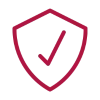FATQs - Frequently Asked Technical Questions
Our frequently asked technical questions are designed to help you find technical advice and guidance to ensure the success of your project.
We often receive various technical questions, and our technical team is always eager to help you understand your project needs. Below are some of the FATQs, or Frequently Asked Technical Questions and Answers, that our customers commonly inquire about.
If you do not find an answer to your technical questions here or require additional technical support, please don’t hesitate to reach out using the form at the bottom of this page or by calling us at 0330 118 0952
Please take a look at our frequently asked technical questions.
I need advice on what screed I need?
There are such a large choice of screeds available we would need to know the following to provide the correct advice:
What is the substrate (Is it concrete, or something else?)
Do you know if the substrate is dry?
Is there anything else that needs to be incorporated? (e.g insulation, underfloor heating)
How thick do you need the screed to be?
What will be the final floor finish?
How quickly do you need to lay the floor finish?
*Note –This is the most fundamental question, so it may be easier to give us a quick call* 03301180952
I am looking to speed up the drying time of the sand and cement screed – what would you recommend
There are several options:
In the market there are many proprietary admixtures that can be added to traditional screed to reduce drying times.
There are “Special cement”, also known as cement replacements, that can be used instead of OPC to improve drying times.
Pre-blended bagged screeds, to which you just add water. Some of these have very fast drying times.
There are some specialist screed materials that have extremely fast drying times, however these products can be costly.
*Note – some of the above options provide additional properties to the screed, for example strength.*
What is a free flowing screed
Free-flowing screed is a self-levelling or self-smoothing compound. They are sometimes known as liquid screeds or self-compacting
What is the miniumum / maximum thickness on the types of screed
For typical traditional screed thickness information, please refer to BS8204. However, many propriety screeds can be laid thinner in accordance to the specific manufacturer of the screed being used.
How do I calculate how much of a product I need?
Coverage rates can vary for every product. We always recommend using the coverage /consumption section of the technical data sheet. If you require assistance with calculating the amount using the coverage rate, please call 0330 118 0952 , and we will be happy to help.
Do all screeds need a carpet or final floor finish
Traditionally, it has been the case that screeds have had to be overlaid with a floor finish to provide a wearing surface. However, we now offer products with abrasion resistant surfaces, which can be left uncovered. Often, although not always, these are designed as industrial finishes. More recently products have been created to be fashionable for decorative finishes.
Is it possible to get an insulated floor screed that will meet the current building regulation standard
The market changes daily, and some specialist products that are advertised as thermal screeds have entered the market. At Screed Warehouse, we offer a wide range of products suitable for use in insulation and screed systems. Please call 0330 118 0952 for advice on your project.
When using Ardex A46 outside, what is the ideal temperature to use it at
The temperature of the background must be 5 degrees c and rising until it hardens on external applications.
Can Ronafloor Coating be used in a home where live reptiles are living
Epoxy resin floors, including RonaFloor epoxy coatings, are frequently used on floors for animal accommodation because they are easily cleaned, if they’re not scattered with slip resistant sand. They are also impervious to liquids and resistant to attack by chemicals in animal waste. Kennels are a typical example.
Epoxy coatings typically can receive foot traffic after approx. 24 hours, and full chemical cure is approximately 7 days, and therefore exposure to cleaning products/water etc should be limited in this period.
Can Ronafloor HB100 be used on existing ceramic tiles
Care should be taken when considering application of coatings to tiles. Coating is not usually considered until tiles are in poor condition, when adhesion of the tiles may be suspect, or if tile grout may be loose, friable or incomplete. Light mechanical abrasion is required to obtain good adhesion, especially when treating half or fully glazed tiles, as this may cause debonding of the tiles from their bed. Coating should only take place if adhesion of the tiles is certain and the condition of the grout is good.
Do you have a finished floor screed that I can use with underfloor heating without a floor finish
Within an underfloor heating specification, it would be recommended to use a screed suited to the system or admixture for the system. You can then use an abrasion resistant screed such as an industrial floor screed as the final finish.
I have been told that I need to level and tile a calcium suphate screed what product would you recommend
In practice, we believe it unwise to use a levelling compound or adhesive containing cement on a calcium sulphate system. Adhesives and levelling compounds suitable for use on calcium sulphate are available on our website.
*Note -Please don’t hesitate to contact us to discuss calcium sulphate brands available.*
How soon can I turn on my underfloor heating after laying the floor covering
Most types of underfloor heating systems can be introduced to heat after 7 days. Some proprietary screeds can allow this to be sooner, but in all cases the system should be brought up to working temperature gradually.
I am looking for a product that isn't on your website, are you able to get hold of this
We have a wide range of products available, and will always try our best to source products that we may not have on our website. Simply give us a call on 0330 118 0952 between the hours of 8.30am and 5.30pm.
What floor covering can I have on top of underfloor heating (UFH)
You can have almost any finish on top of UFH, just as long as the floor recommendations from the manufacture are adhered to. Usually, it would be a requirement that the Underfloor heating should be commissioned and turned off again prior to the application of a finial floor finish.
What is the drying time of screed
Drying times will vary depending on what type of screed you are using: whether it’s a cement replacement, additive or self smoothing compound. It is important to keep the building conditions in mind too. We would also recommend looking at the technical data sheet on the product for a rough guide on approximate drying time.
I have heard obout shrinkage, cracking & curling in floor screeds, what are these and how do they occur
hese are common issues screeds may face. The screed drying process takes place from the surface down, this resulting in a tendency for the screed to curl upwards at the edges. It is also possible for the screed to undergo shrinkage within the drying period.
The extent of shrinkage cracking and curling of screeds are influenced by:
Drying conditions – It may be necessary to control this, and the drying time, by covering the screed with polythene – this is known as curing.
Mix proportions– Excessive amounts of cement or water in a screed mix can be harmful to the screed, and cause the screed to be more prone to curling and cracking.
Bond strength – The tendency of screeds to curl upwards at the edges during drying is generally resisted by the bonding to the substrate and the thickness of the screed. Bonded screeds have less risk of curling and cracking.
Thickness of the screed – Thicker screeds have more strength to resist the curling force.
What are the recommendations for installing an egg crate underfloor heating system below a screed
This is a complicated question, since the recommendations vary depending on the type of screed and egg crate system you are using. There are so many underfloor heating systems out there, and the thickness of the screed required may vary depending on the secure bond between the system and substrate. In all instances, we would recommend keeping the system as flat as possible.
We offer two types of egg crate system, both of which come with and without insulation.
Egg crate systems which do not have holes in, cannot be secured to the subfloor and are therefore classified as a floating system. Where a levelling / flowing screed, or a cement replacement is being used, this would require the screed to be laid at a depth of 50mm minimum*^. Where a traditional sand and cement screed is being used, the minimum required depth would be 65mm^ for domestic applications and 75mm^ for commercial applications. This is to ensure no future risk of cracking.
If the egg crate system has holes in it, the screed bonds through the hole onto the insulation or subfloor. Where there is an insulation panel attached, this should be secured using glue or screws. A levelling screed can then be used at a minimum depth of 25mm^, or a traditional screed at 65mm^ for domestic applications or 75mm^ for commercial applications.
*There are a select few products which may allow this to be reduced to 40mm, please call our team for advice if you would like further information.
^Always refer to the manufacturers’ data sheets for guidelines. Application depth may vary between products.
What solutions are available for a substrate with Bitumen on it
Where a substrate has Bitumen or asphalt on it and cannot be removed, we would usually recommend using Ardex Arditex NA, which can be applied directly to the Bitumen without the need for a primer. In either instance, it is vital to ensure that the flooring-grade asphalt/bitumen is in good condition, that there are no signs of de-bonding and/or hollowness, and that the surface is dry and free of any contaminants before laying.
If the Bitumen is soft, but cannot be removed, we would recommend applying a traditional floating sand and cement screed, at a minimum depth of 65mm (or according to the manufacturer’s guidelines for a floating system), to compensate for any movement within the Bitumen.
Can I lay resin bound surfacing onto existing block paving
No. Resin bound surfacing must not be laid onto modular paving systems as independant movement of the blocks/slabs will cause cracking.
Can I lay resin bound surfacing directly onto compacted hardcore
For light foot traffic resin bound surfacing may be laid at increased thickness (40mm) onto well compacted type 1 or type 3 hardcore. This method is not suitable for vehicular traffic.
Can I drive on resin bound surfacing
Yes. Resin bound surfacing is suitable for vehicles upto 7.5 tonnes as long as the underlying base is suitable.
Can I mix the existing gravel from my drive/footpath with resin
Aggregate must be washed and kiln-dried and be specifically graded for use in resin bound surfacing.
Can I mix resin bound surfacing with a normal cement mixer
No. A forced action mixer with a minimum capacity of 120 litres must be used to ensure adequate mixing.
How do I clean resing bound surfacing
General cleaning is to be carried out by lightly jet washing. Refer to the resin-bound surfacing cleaning and maintenance guide
Is resing bound surfacing slippy
No. All blends are tested for slip resistance and all have a low risk of slip category
What is the difference between airborne and impact sound
Airborne noise is transmitted by air and atmosphere, for example a television, a dog barking or people talking.
Impact noise is when an object impacts on another, for example a person’s footsteps or an object being dropped on the floor.
Did you find the answer you were looking for?
Our frequently asked technical questions may not be able to cover everything that you need. We are here to help. Complete the form below, and we will do all we can to help! Please feel free to also call us to answer any of your technical questions. 0330 118 0952






